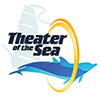 Pollution is one of the many threats to the marine environment. Plastic bags, cups, balloons, discarded fishing line and nets, toxic chemicals, run off, and other trash that ends up in the ocean can entangle, be ingested by, and/or poison marine life.
Pollution is one of the many threats to the marine environment. Plastic bags, cups, balloons, discarded fishing line and nets, toxic chemicals, run off, and other trash that ends up in the ocean can entangle, be ingested by, and/or poison marine life.
What can you do to help? Reduce, Reuse, and then Recycle. More specifically, doing just one of the following suggestions will help!
Limit use of disposable products.
There are more people than ever inhabiting the Earth using more disposable products than ever before.
- When shopping, take a canvas bag with you instead of using paper and plastic ones from the stores.
- If using paper and plastic bags from the stores, pack as much as possible in each bag to limit the number of bags needed. Paper bags hold more than plastic ones and are biodegradable.
- Buy household items in economy size.
- Use kitchen towels and cloth napkins instead of paper products.
- Carry a mug or cup with you to use when you purchase a beverage, such as soda or coffee.
- Buy office paper products, napkins, paper towels, and toilet paper made of recycled paper.
- Ask the cashier at fast food restaurants to give you only the number of condiments and napkins you need instead of handfuls.
Use biodegradable and non-toxic products
This prevents harmful chemicals from getting into the water (and they are better for the environment in general).
- Use natural ways to eliminate pests.
- Buy earth friendly and organic products, which are grown, handled, and processed in ways that reduce and eliminate harmful practices such as the use of toxic, persistent pesticides and fertilizers, and that prohibit the use of genetic engineering, irradiation, sewage sludge, growth hormones, and antibiotics.
Properly dispose of all waste.
- Cut plastic beverage rings.
- Don’t release balloons at celebrations.
- Never dump toxic materials, such as engine oil, down a sewer.
- Participate in or create your own area clean-ups.
- Recycle!
- Return plastic bags to stores that will reuse or recycle them.
Restrict water usage.
- Don’t leave the water running when brushing your teeth, washing your dishes, shaving, etc.
- Use water saving shower heads.
- When staying in hotels, ask the maid service not to change sheets and towels every day.
- Only run your dishwasher and washing machine when you have a full load.
Carpool when possible.
Work to Make Change
Write your lawmakers and ask them to support any legislation that makes our waters safer, strengthens anti-pollution laws, and funds research and educational efforts to learn about the marine environment.
The Earth was not given to you by your parents. It was loaned to you by your children.
–Old Kenyan Proverb


